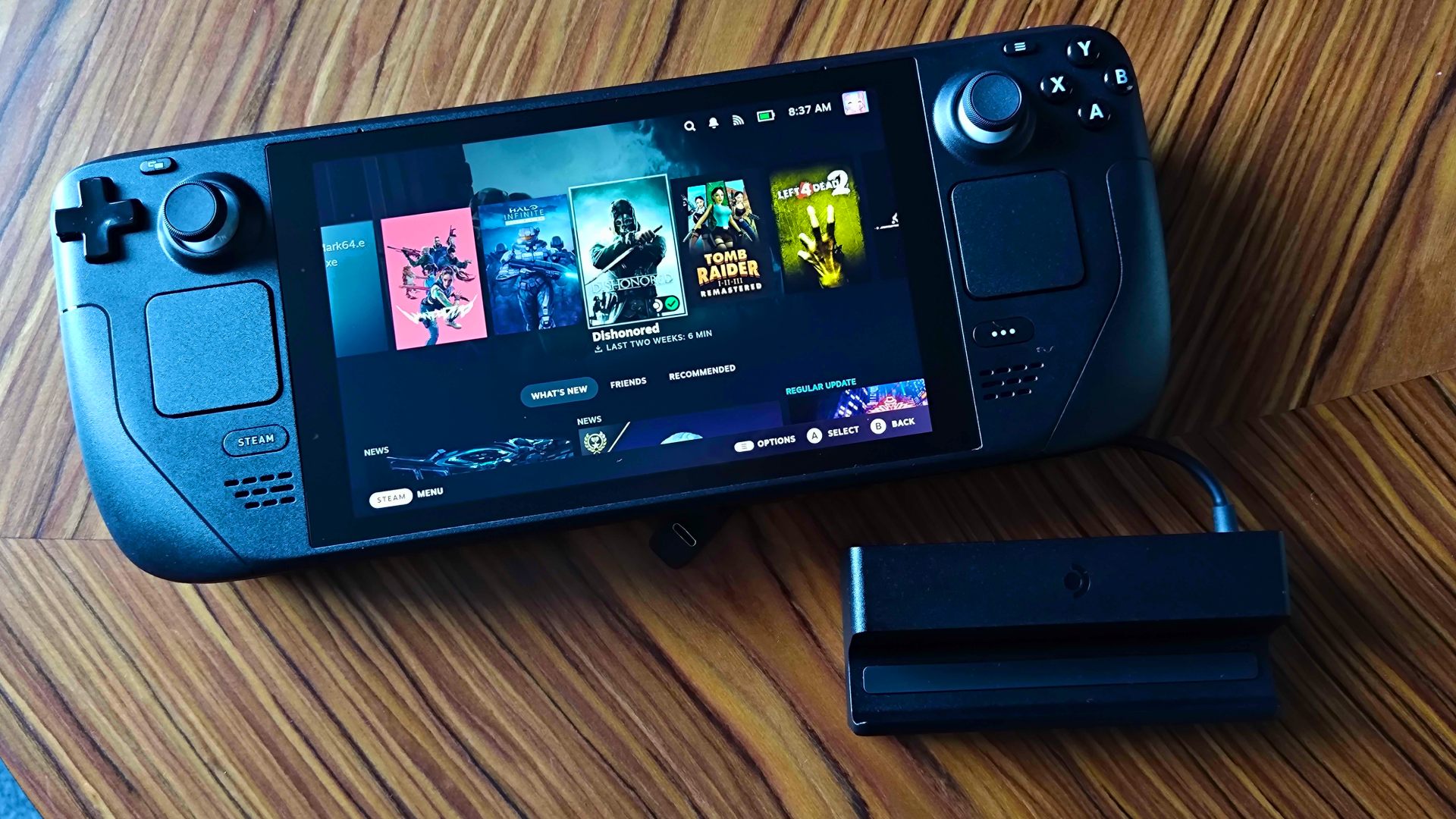
Before Valve could even get its official Steam Deck dock out the door, hordes of third party accessory makers had already whipped up their own version. As a result, the scene is now full to the brim with options, many of which go above and beyond to do more than merely mimic the real McCoy. It’s those same ambitions that have me thinking about what I’d love to see included with Valve’s next docking station, as I reckon the gaming PC giant could push the accessories bar even higher next time around.
If you’ve already checked out our best Steam Deck dock guide, you’ll know Valve’s official docking station is sitting pretty as our premium pick. Not only does it fit the gaming handheld like a glove, but it’s made of a similar durable plastic that sings from the same high quality hymn sheet as the portable. Plus, it’s the only dock out there that can receive firmware updates directly from SteamOS, meaning bugs and quirks can be automatically ironed out.
But hey, I’m not here to rhyme off what the official Valve docking station gets right. Instead, I want to explore ideas for a sequel accessory, one that could accompany the eventual Steam Deck 2. Most of my wish list is inspired by third-party solutions that already exist, but it’s also a collective of feature cravings I’ve experienced while using the countless docking stations I’ve used since 2022. So, let’s dive into what I want Valve to embrace with its next accessory.
1. An adjustable cradle
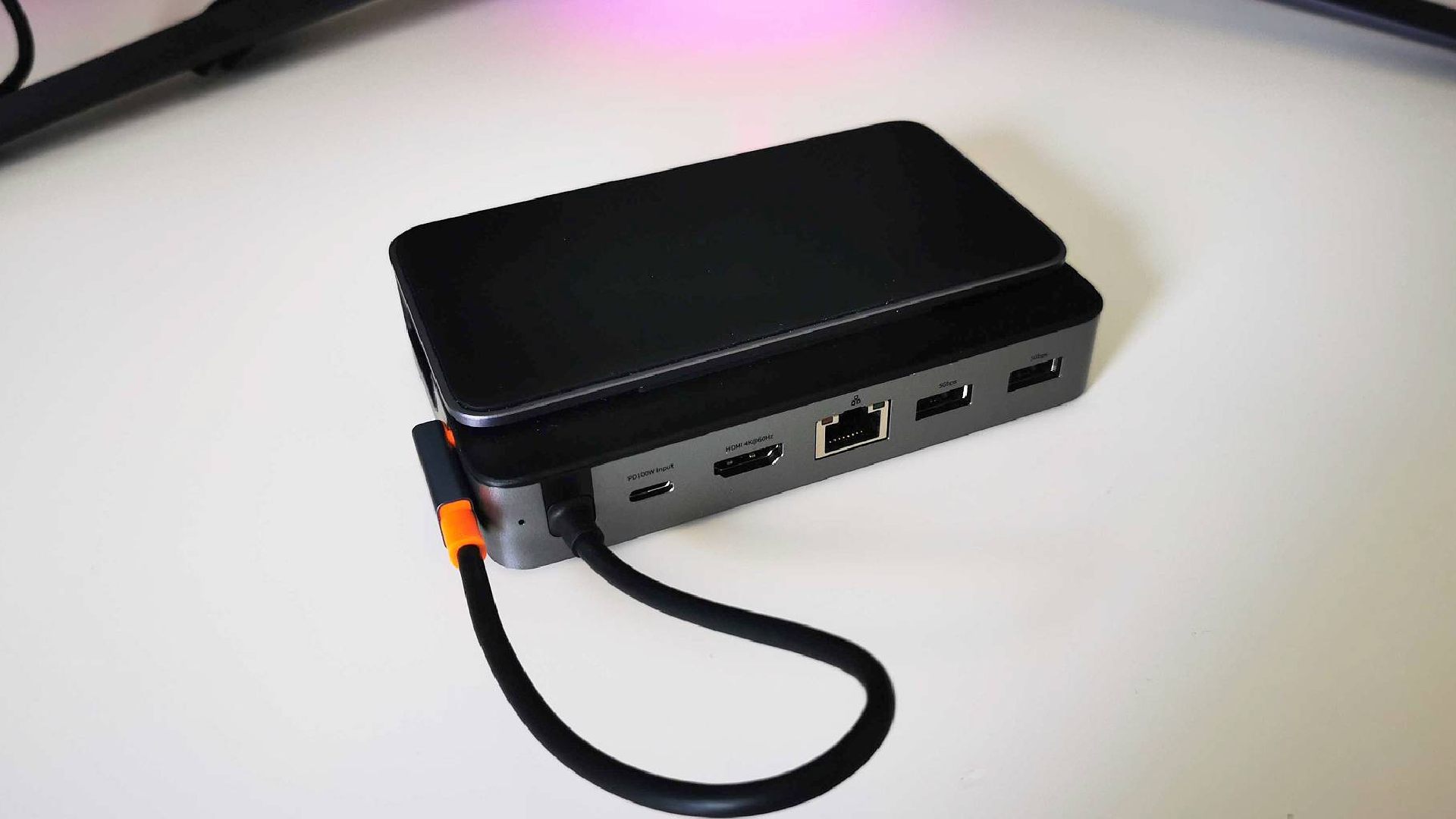
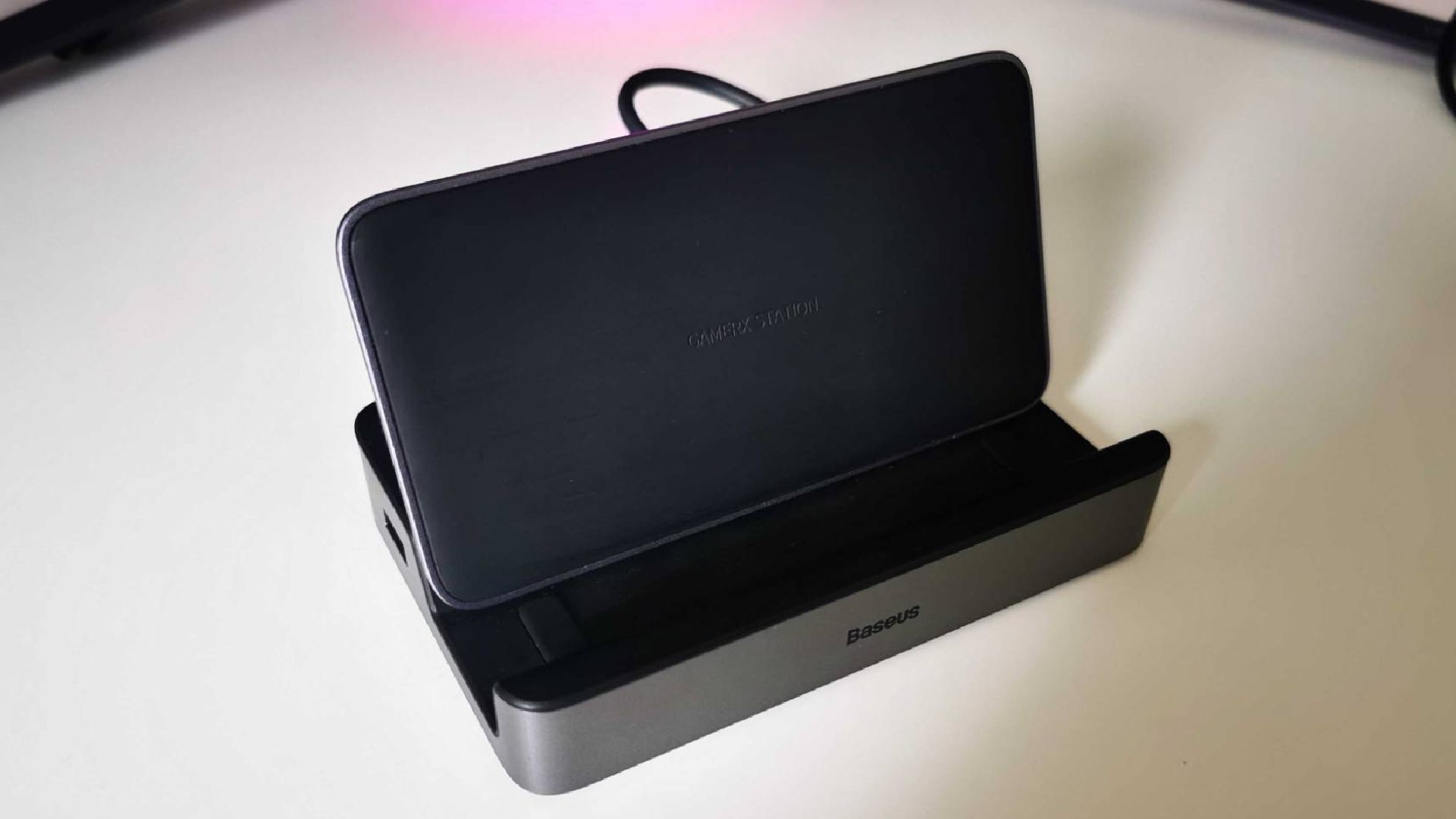
This shouldn’t remotely come as a surprise, but the official Valve Steam Deck dock is pretty much made with just the Steam Deck in mind. I mean, rivals like the Asus ROG Ally didn’t exist when it was first designed in any case, and the made-to-measure fit is one of the accessory’s strengths. That said, it’d be nice if it boasted a bit more use case versatility when it comes to that integrated cradle, and I’d love to see the next one add some sort of adjustability into the mix.
Prior to testing the Baseus 6-in-1, I hadn’t given much thought to the idea of an adjustable cradle. It’s needless to say that changed after the review, as being able to sit the Deck at any angle, or even fold it into something that looks more like a laptop hub, is extremely practical. Not everyone wants a handheld standing proud on their TV cabinet or desk, and when folded flat, it’ll sit neatly under the portable PC for placing in a media shelf like a console.
2. Front facing USB ports
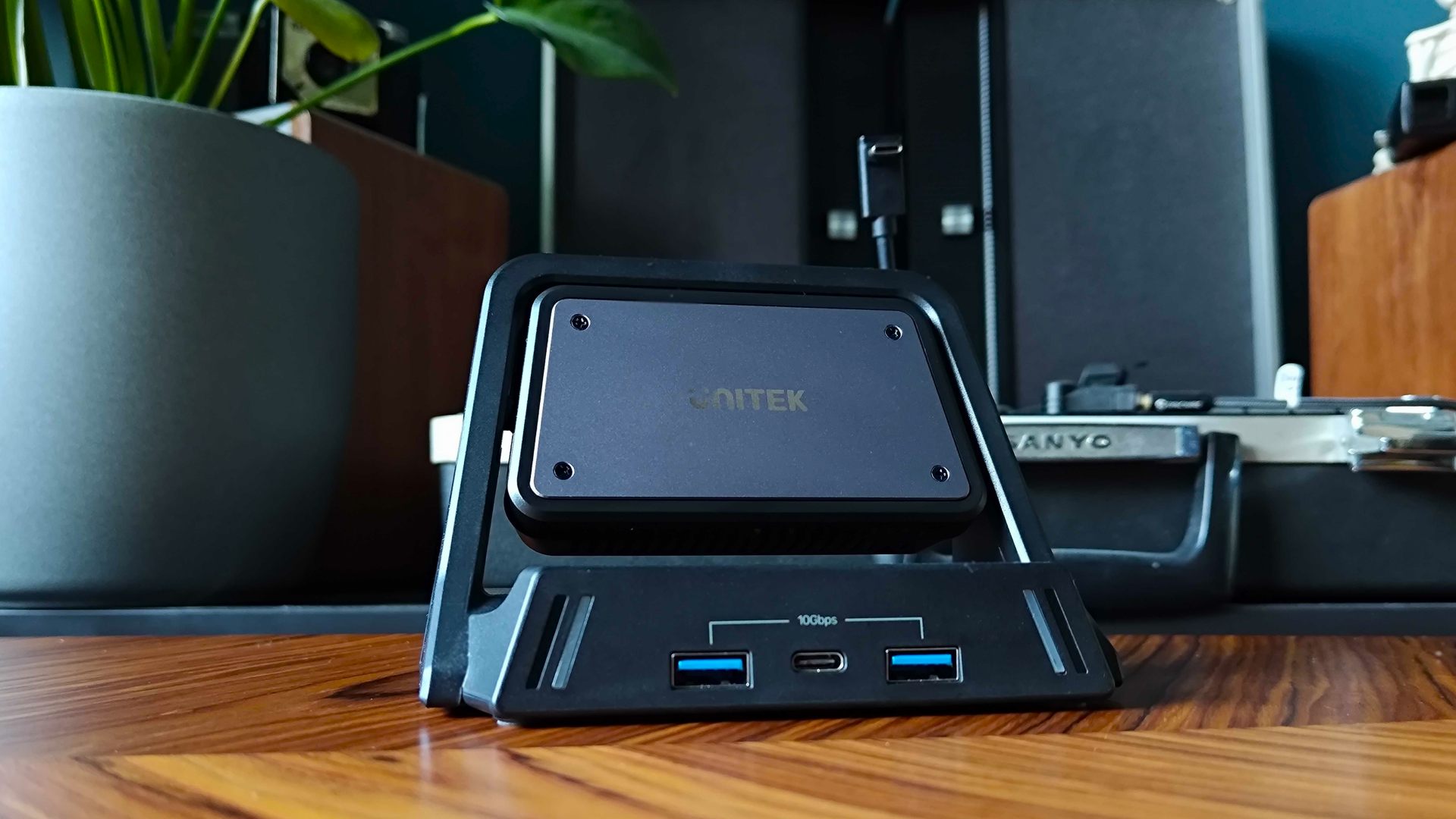
I’m sure some of you are reaching for your pitchforks, but some of us still like using wired controllers. Yes, I know, there’s nothing stopping me from just using the back ports, and my Thrustmaster eSwap controller does have a pretty long cable to reach around. Nevertheless, popping a pad into the front of something is a motor skill at this point acquired by years of using consoles, not to mention it reduces the risk of yanking any cords and making the Steam Deck OLED do a 360 off of your desk or cabinet.
Funnily enough, there aren’t many third party docks with front USB ports out there either, which makes me feel like I’m in a minority of Steam Deck dock users craving the feature. The only one that actually comes to mind is this docking station by Unitek with a built in thermoelectric cooler, but at $68.99, you’re hardly going to be picking one up just for its port placement.
3. SSD slot
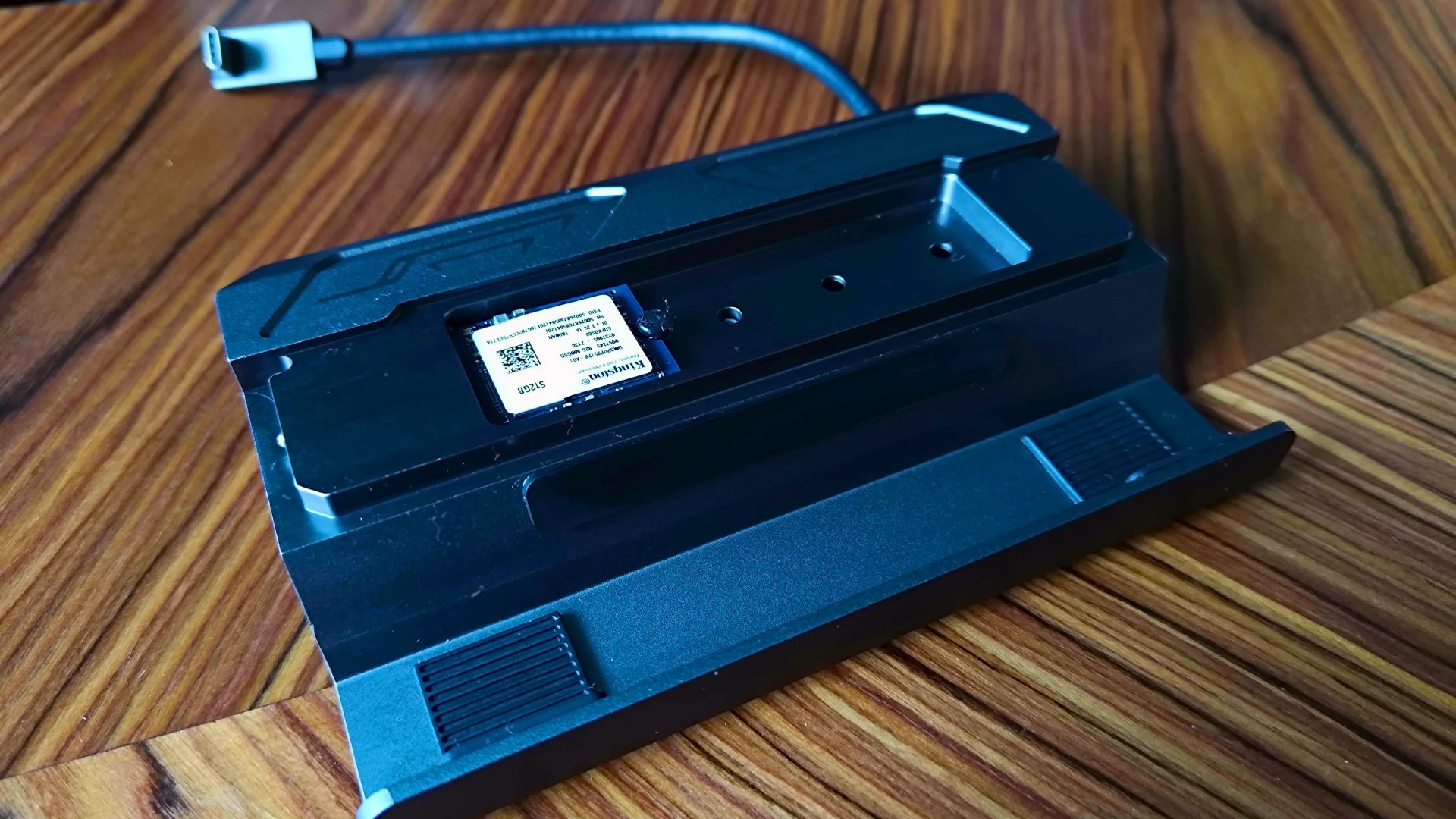
Now, I am aware that adding an M.2 SSD slot to an official Steam Deck dock will probably mean paying substantially more. However, being able to have access to a separate NVMe drive while at your desk makes Valve’s handheld even more of a hybrid system, and it makes for a great way to manage your library before heading out for the day.
Hooking up to a docking station like the Jsuax M.2 Steam Deck dock means you can instantly access up to 4TB of Steam games using USB-C. Naturally, it’ll link up to your gaming monitor and any connected peripherals, making the handheld feel even more like a fully fledged desktop setup. SteamOS also supports transferring games two and from the Deck’s own drive to the one in the dock, which is incredibly handy if you’ve got limited internet space or an internet connection that runs at the speed of brick.
4. Integrated stats screen
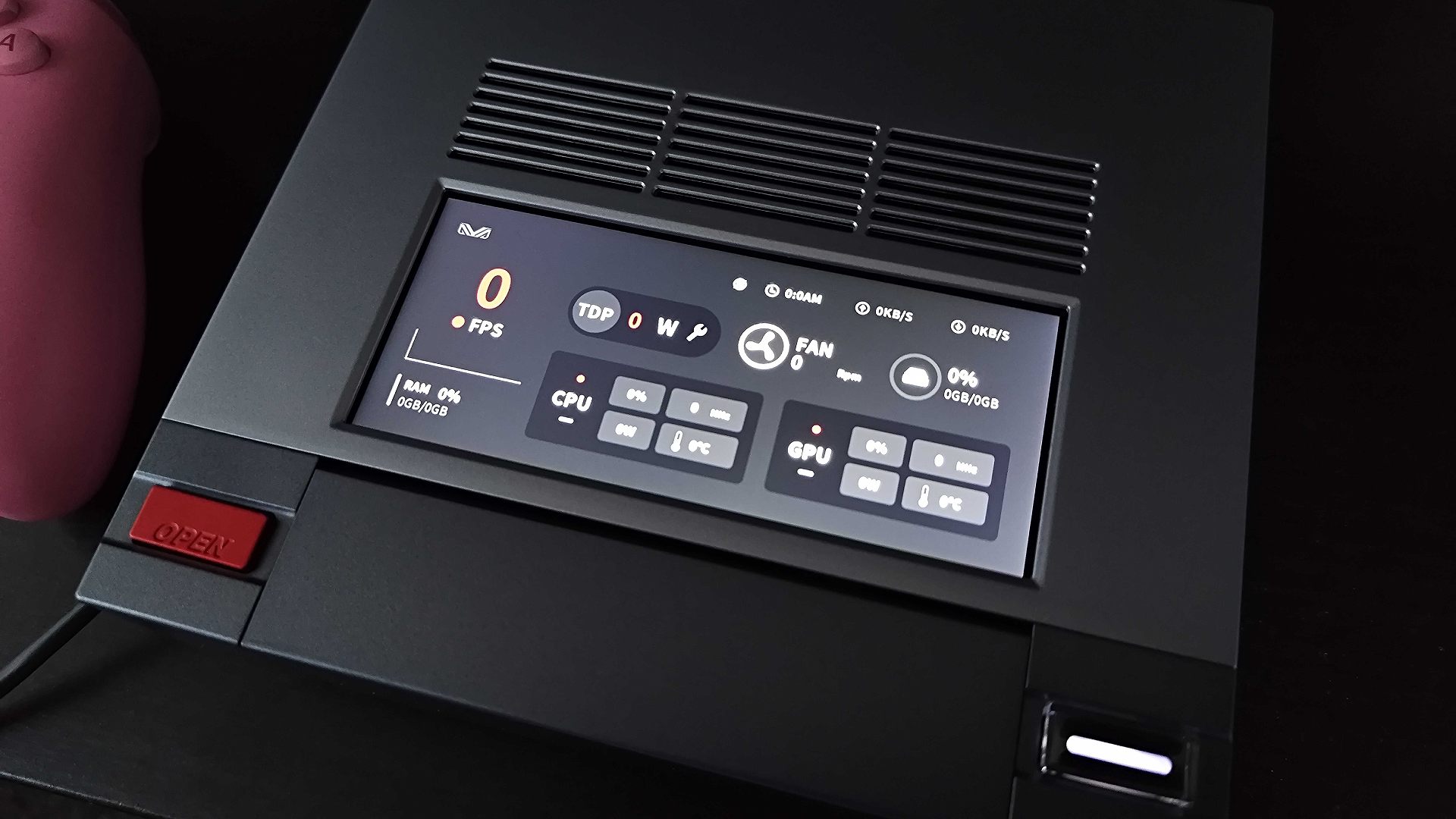
I’d love to say I want a tiny stats screen for functionality, but if I’m being honest, I think it’d just look cool. Don’t get me wrong, having a visible bunch of figures for frame rate, fan speeds, and temperature is incredibly handy, not to mention it’d save you having to use overlays. All I’m saying is that while practicality is at the forefront of my argument for its inclusion in Valve’s next Steam Deck dock, I’m ultimately dreaming of a setup that can display the same dorky Jake the Dog from Adventure Time GIF as my PC AIO cooler.
To give you an idea of what I'm picturing, I'm thinking something like the screen attached to this Dockcase USB-C hub over at Amazon. Realistically, a display that size is more likely to fit within a standard dock footprint, but if I was left to my own devices at Valve HQ, I'd probably squeeze something like the one on the top of Ayaneo's Mini PC AM02 (I'm currently testing one for review and I'm low key obsessed with its tiny screen).
5. More colors
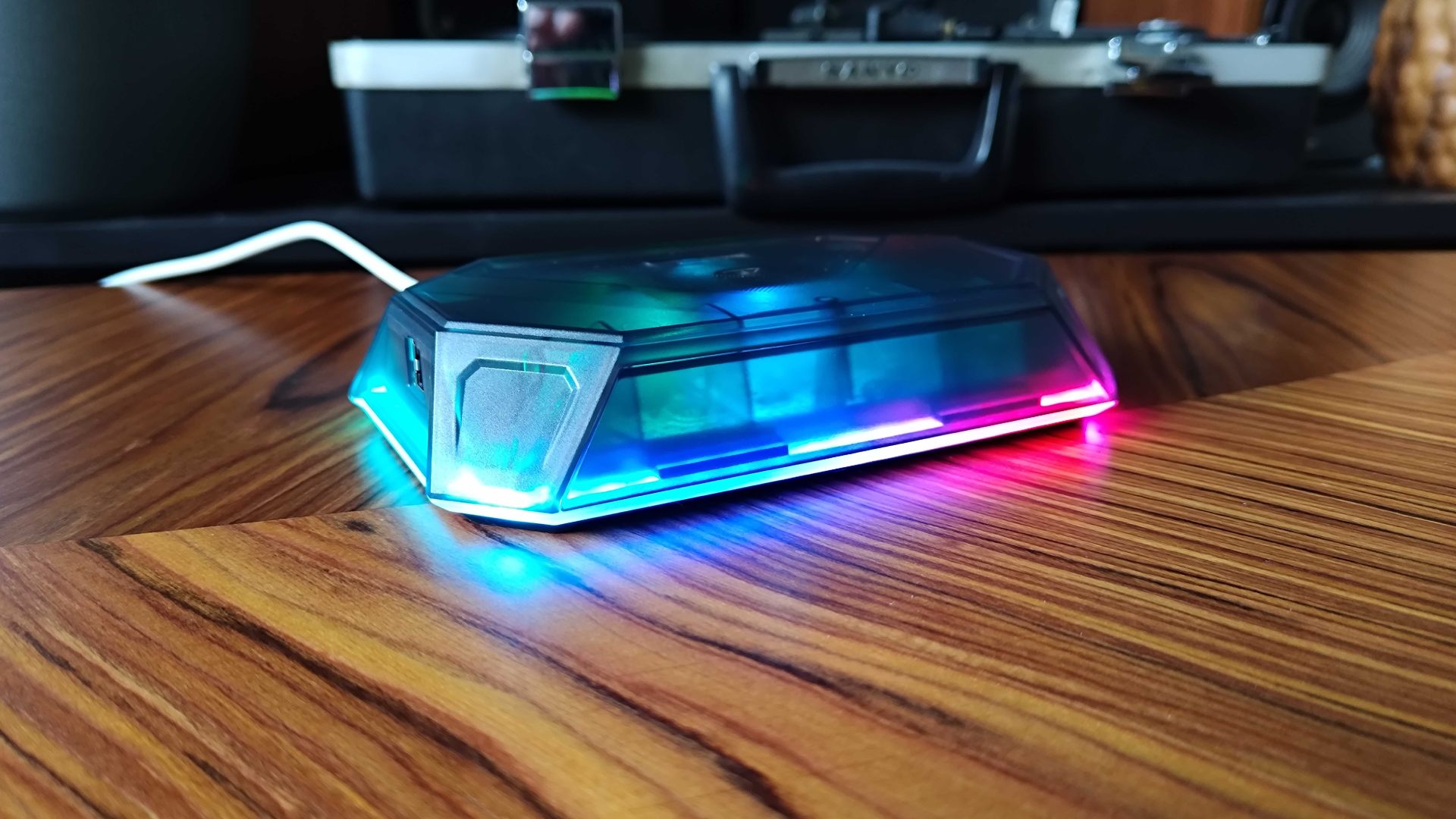
I’ve saved my most basic request for last, as while my goth status means I wear mostly black, I prefer my accessories to have a splash of color. If I’m going to keep a Steam Deck dock permanently at my gaming desk or next to my TV, I’d prefer it to spread its feathers like a ‘90s translucent peacock, but I’d even settle for the same aesthetic as the new limited edition OLED model.
Out of all the docking stations out there right now, I think Jsaux’s RGB dock is the closest to what I’m envisioning. Specifically, there’s a transparent version that gives you a glimpse of the accessory’s guts, and while I can take or leave the edge lighting, it does add a nice amount of flare.
Could a Steam Deck dock boost performance?
Before I sign off, I want to touch on the idea of Valve’s next Steam Deck dock providing some sort of performance boost. For that to happen, I think we’d need to end up with something that’s less of a docking station and more of an eGPU, or at least boast the right compatibility.
When the Switch arrived, it caused a bit of confusion regarding the idea of docked mode performance. It wasn’t intentional, nor was it meant to be a placebo, but Nintendo’s handheld doesn’t receive a hardware boost from anything within its docking station. Instead, the system simply switches GPU clock speeds back up to 460MHz, rather than 307.2MHz in handheld mode. So, rather than actually enhancing performance, it lets the handheld run at full speed since it’s connected to the dock’s power supply.
For all I know, Valve could be working on a dock that actually provides a power boost to the Steam Deck, inevitably making me look like a foolish sceptic. Until that happens, I’m sticking to my wish list that focuses on functionality and design, as I already know what’s possible thanks to the ambitious third-party scene.
Looking for a rig that can handle the latest Steam games? Check out the best gaming laptop and gaming PC options for powerhouse systems. Alternatively, swing by the best gaming monitor for screens that'll put your hardware to work.







